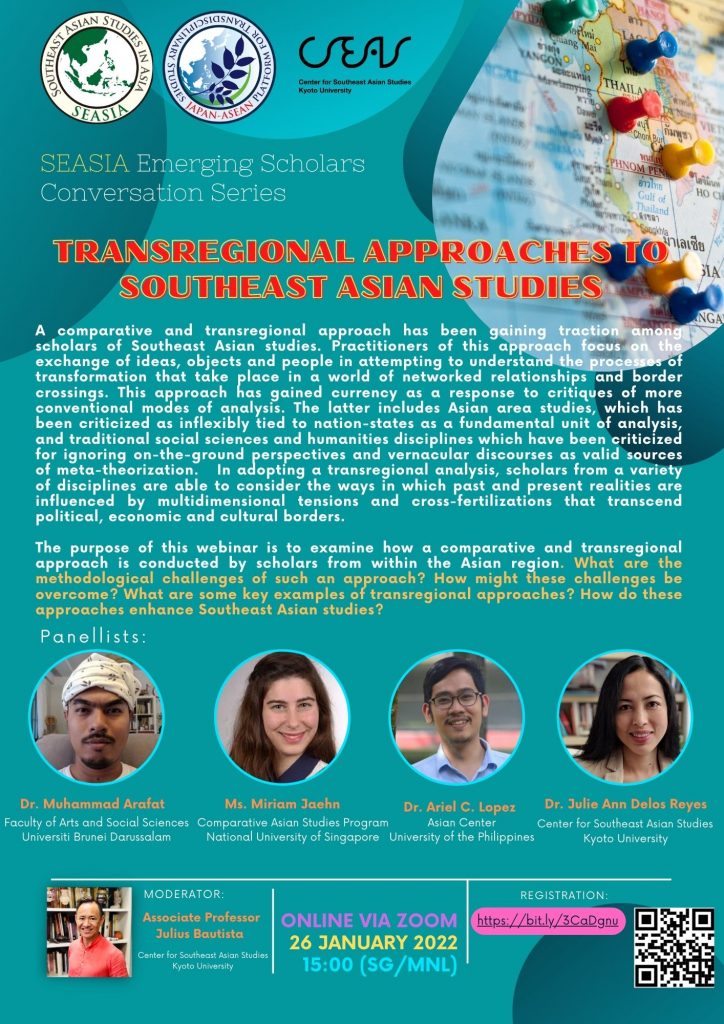A comparative and transregional approach has been gaining traction among scholars of Southeast Asian studies. Practitioners of this approach focus on the exchange of ideas, objects and people in attempting to understand the processes of transformation that take place in a world of networked relationships and border crossings. This approach has gained currency as a response to critiques of more conventional modes of analysis. The latter includes Asian area studies, which has been criticized as inflexibly tied to nation-states as a fundamental unit of analysis, and traditional social sciences and humanities disciplines which have been criticized for ignoring on-the-ground perspectives and vernacular discourses as valid sources of meta-theorization. In adopting a transregional analysis, scholars from a variety of disciplines are able to consider the ways in which past and present realities are influenced by multidimensional tensions and cross-fertilizations that transcend political, economic and cultural borders.
The purpose of this webinar is to examine how a comparative and transregional approach is conducted by scholars from within the Asian region. What are the methodological challenges of such an approach? How might these challenges be overcome? What are some key examples of transregional approaches? How do these approaches enhance Southeast Asian studies?
Date: 26 January 2022, 15:00 (SG/MNL)
Register: https://bit.ly/3CaDgnu
Panellists:
- Dr. Muhammad Arafat, Faculty of Arts and Social Sciences, Universiti Brunei Darussalam
- Ms. Miriam Jaehn, Comparative Asian Studies Programme, National University of Singapore
- Dr. Ariel C. Lopez, Asian Center, University of the Philippines
- Dr. Julie Ann Delos Reyes, Center for Southeast Asian Studies, Kyoto University
